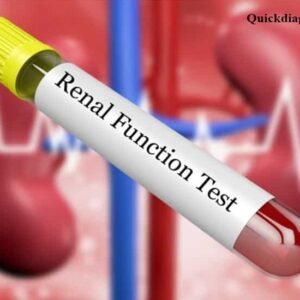Thyroid Stimulating Hormone (TSH) test is a blood test that measures the level of TSH in the bloodstream. TSH is produced by the pituitary gland, a small gland located at the base of the brain. Its primary function is to regulate the production and release of thyroid hormones, specifically thyroxine (T4) and triiodothyronine (T3), by the thyroid gland.
The TSH test is commonly used to assess thyroid function and to diagnose or monitor thyroid disorders. Here’s an overview of the TSH test:
- Purpose:
- Thyroid Function: TSH is a sensitive marker for thyroid function. An elevated TSH level may indicate an underactive thyroid (hypothyroidism), where the thyroid gland is not producing enough hormones.
- Thyroid Disorders: TSH levels can help diagnose various thyroid disorders, including hypothyroidism, hyperthyroidism, and thyroid nodules.
- Test Procedure:
- The TSH test involves drawing a blood sample from a vein, typically from the arm.
- The blood sample is then sent to a laboratory for analysis.
- Reference Range:
- The normal range for TSH levels can vary slightly between different laboratories. However, typical reference ranges are usually between 0.4 and 4.0 mIU/L (milli-international units per liter).
- Interpretation of Results:
- Normal TSH Levels: A TSH level within the normal range suggests that the thyroid is functioning properly.
- Low TSH Levels: Low levels may indicate an overactive thyroid (hyperthyroidism).
- High TSH Levels: Elevated levels may suggest an underactive thyroid (hypothyroidism).
- Clinical Utility:
- The TSH test is often used in conjunction with other thyroid function tests, such as T4 and T3, to provide a comprehensive assessment of thyroid health.
- Monitoring TSH levels is crucial for individuals with thyroid disorders to adjust medication dosages and ensure optimal thyroid function.
- Factors Affecting TSH Levels:
- TSH levels can be influenced by factors such as stress, illness, medications, and changes in body weight.
It’s essential to interpret TSH test results in the context of an individual’s overall health and medical history. Abnormal TSH levels may prompt further testing to identify the underlying cause and guide appropriate treatment. If you have concerns about your thyroid function, it is recommended to consult with a healthcare professional for a thorough evaluation.






Reviews
There are no reviews yet.